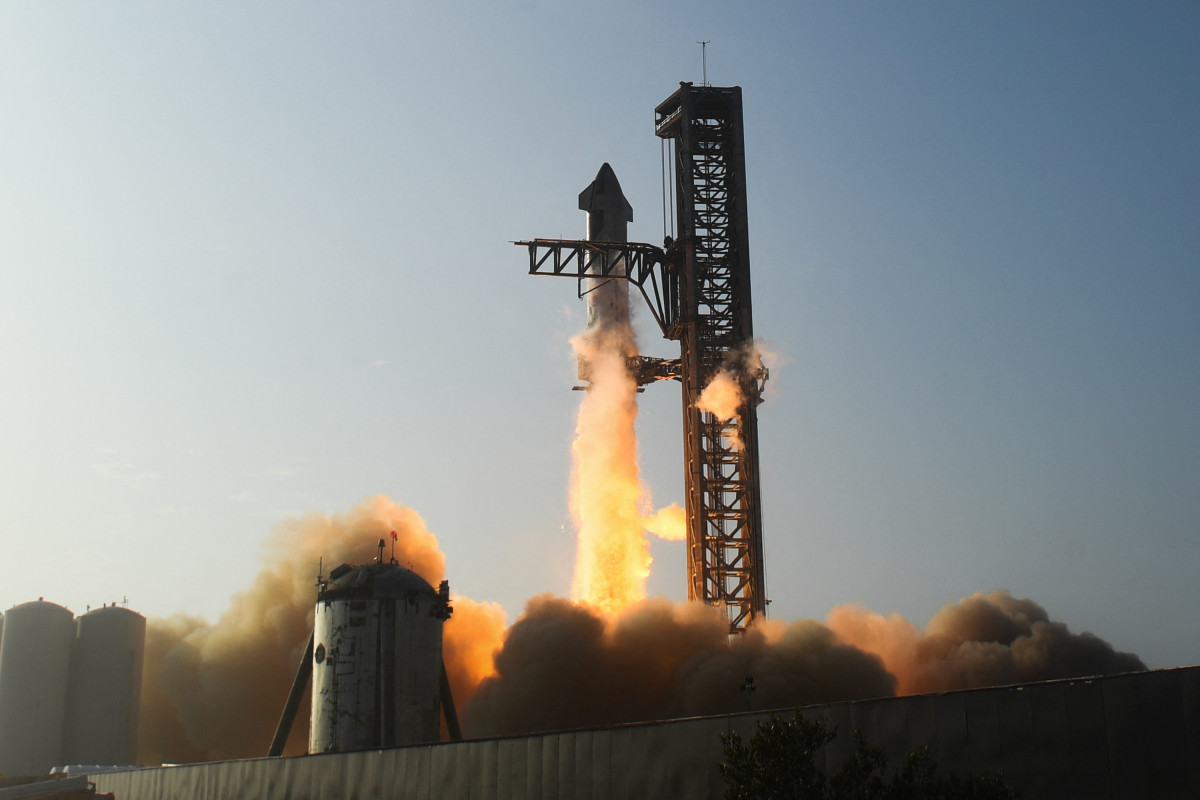
SpaceX's Starship, the most powerful rocket ever built, is designed to accelerate one of CEO Elon Musk's many goals: guide humanity to Mars and beyond. But Starship, against a backdrop of tremendously high expectations for the impact that Starship will have on humanity, only has one flight under its belt: an April test launch that resulted in the mid-air self-destruction of the rocket just minutes into a successful launch.
The launch, which Musk hailed as a success despite its fiery conclusion, set off a routine, months-long investigation by the Federal Aviation Administration (FAA) whose goal was to determine what, exactly, went wrong.
The FAA in September concluded its investigation, saying that SpaceX will need to take 63 corrective actions before it will be cleared for that second test flight.
Related: Elon Musk shares exciting updates about the future of interplanetary travel
The FAA predicted in September that Starship ought to be able to fly again in mid-October. But the process is still waiting on the U.S. Fish and Wildlife Service to complete a review of Starship's water deluge system prior to a launch.
The review, agency officials said in September, could take anywhere from 30 to 135 days.

The U.S. Fish and Wildlife Service did not return TheStreet's request for comment.
Despite the current lack of a regulatory go-ahead, SpaceX decided to prep Starship on the launchpad. In a video shared Oct. 24 on the social media platform X, SpaceX said that Starship and Super Heavy were "loaded with more than 10 million pounds of propellant" in a "flight-like rehearsal ahead of launch."
Starship and Super Heavy were loaded with more than 10 million pounds of propellant today in a flight-like rehearsal ahead of launch pic.twitter.com/VbBTdR5h9p
— SpaceX (@SpaceX) October 25, 2023
"The vehicle is ready for the second test flight of a fully integrated Starship, pending regulatory approval."
A spokesperson for the FAA told TheStreet that there are no updates in the agency's Starship review. It remains unclear when Starship will be granted a green light.
Related: Elon Musk is frustrated about a major SpaceX roadblock
The rocket ship has been sitting fully stacked on the launchpad since Sept. 5, when Musk said that the vehicle — which boasts a "tremendous amount of new technology" — is "ready to launch, awaiting license approval."
Musk said in October that, so long as the engines light during Starship's eventual second test flight, he's confident it will reach orbit. He said at the time that Starship should be able to begin launching Starlink satellites in about a year, "depending on when licenses are granted."
He predicted that an uncrewed Starship mission could land on Mars within the next four years.
Executives from several U.S. space companies, including SpaceX and Blue Origin, testified before a Senate subcommittee Oct. 18 to discuss issues with the FAA. The agency was not invited to testify.
“The FAA has neither the resources nor the flexibility to implement its regulatory obligations,” SpaceX Vice President of Build and Flight Reliability Bill Gerstenmaier said during his testimony.
The FAA, in an effort to keep pace with industry demand, said in a statement that it is working "diligently to attract, hire and retain additional staff."
Get investment guidance from trusted portfolio managers without the management fees. Sign up for Action Alerts PLUS now.







